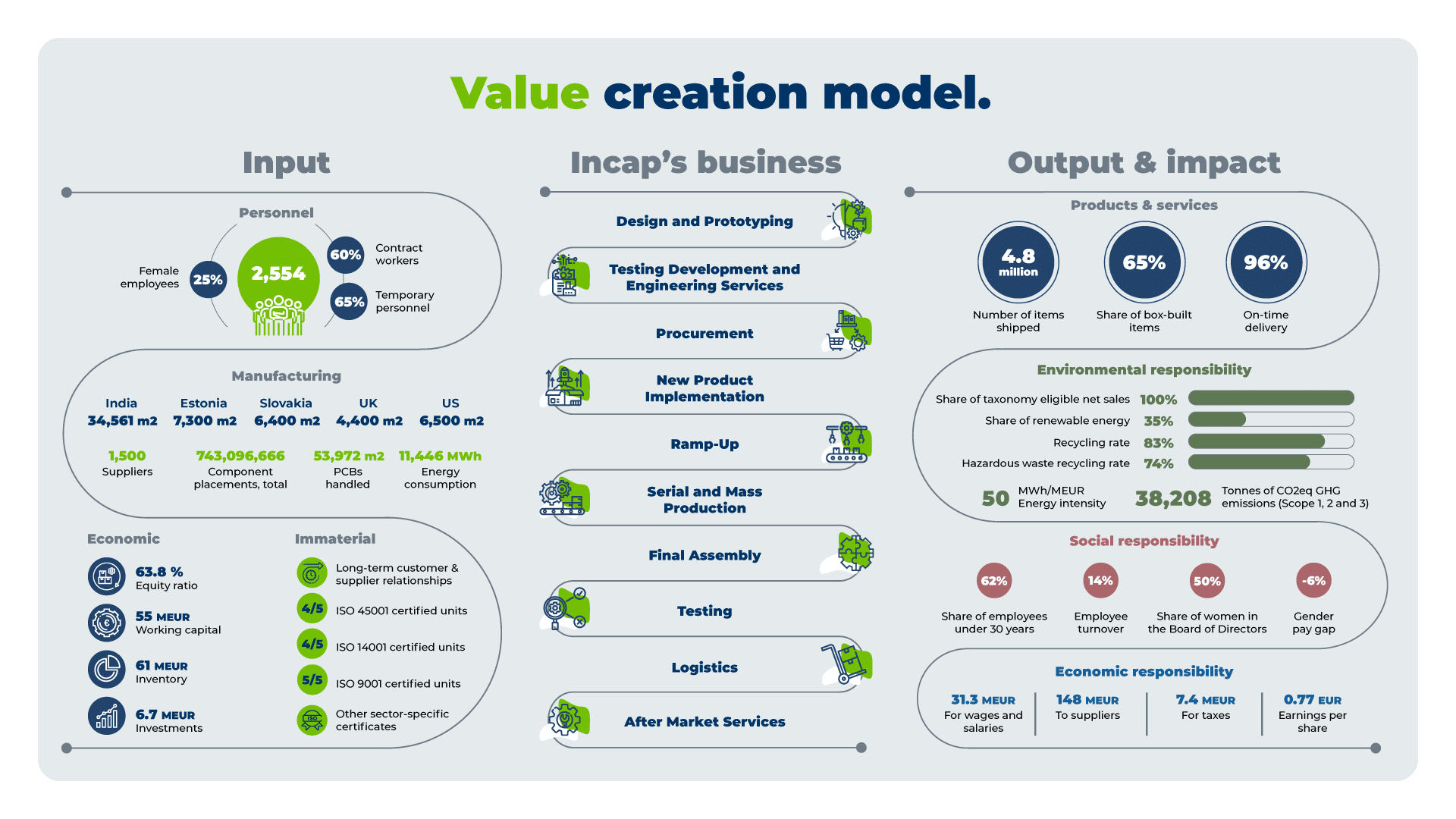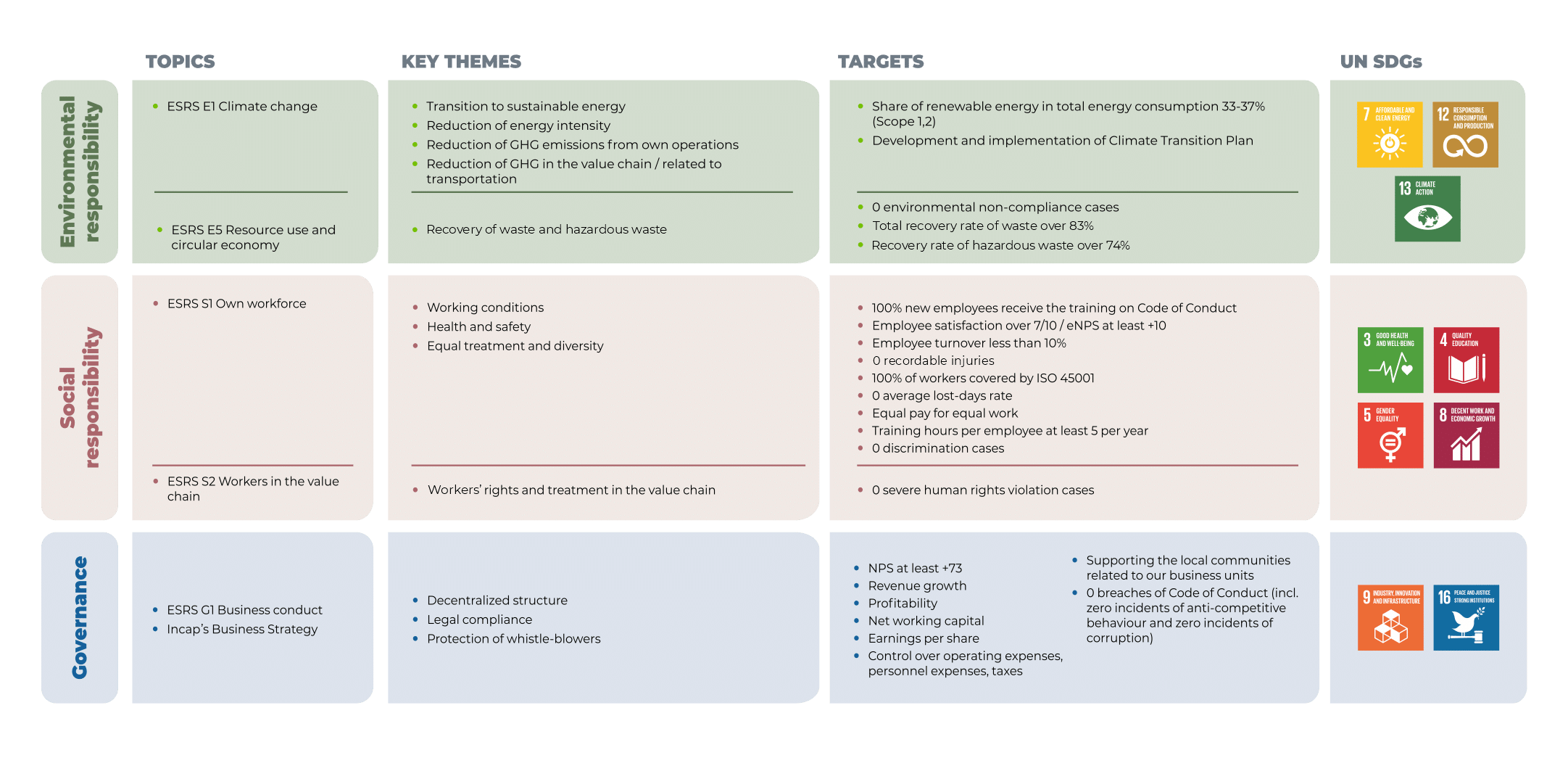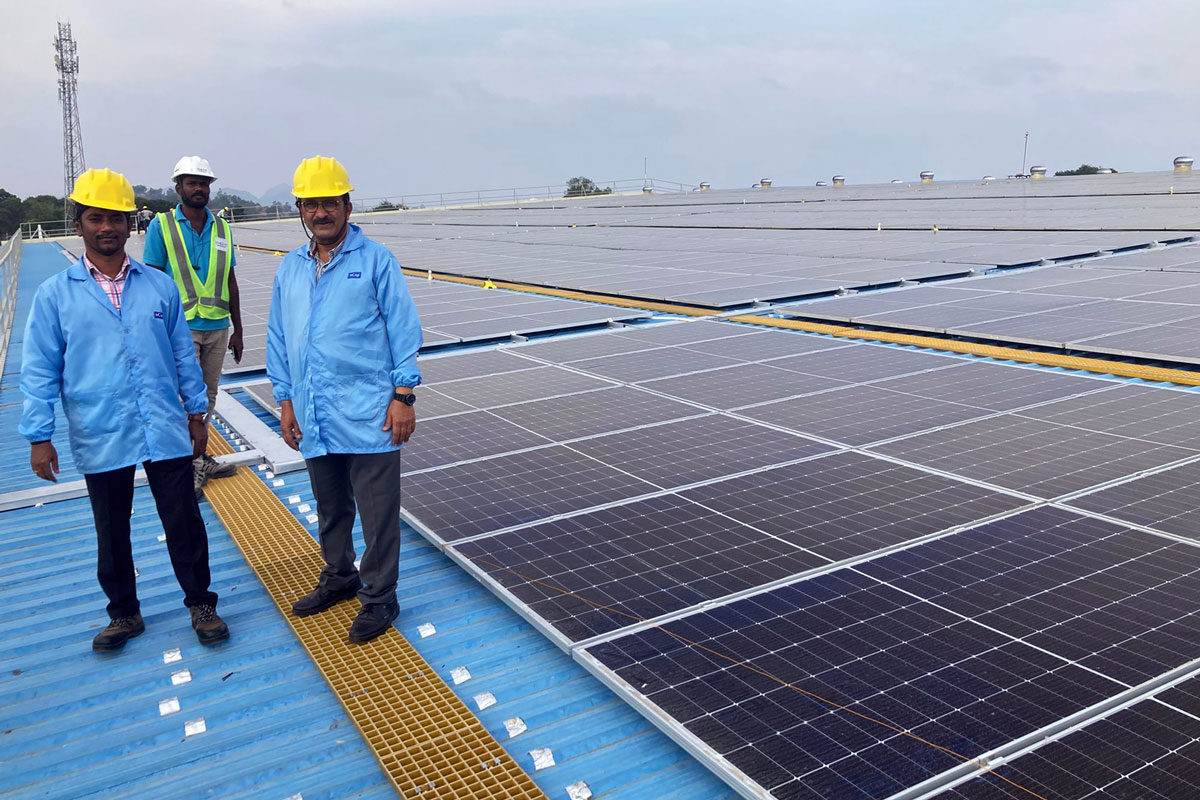As a globally operating electronics manufacturing services company and a growing organisation, sustainable operations are a must in achieving our goals. Acting in a responsible and trustful way is an integral part of our mission, strategy and operations.
We are committed to actively promoting sustainable development to ensure that we will continue to be the trusted partner in our industry and to meet the increasing expectations of all our stakeholders also in the future.
We have committed to all 17 Sustainable Development Goals of the United Nations Global Compact and have selected 9 goals that promote human rights, labour, the environment and environmental protection as the most important for our operations.




















